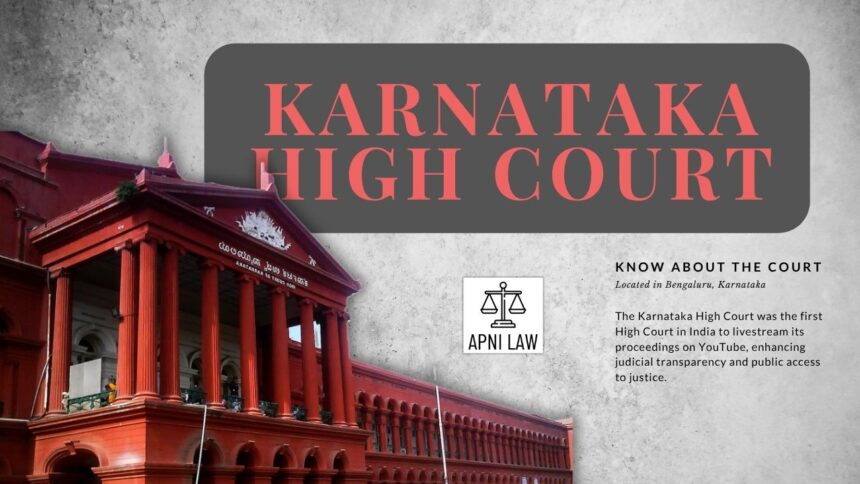Introduction
The Karnataka High Court (KarHC) decided that a person’s passport copy and related details cannot be disclosed to a third party under the Right to Information Act, 2005 (RTI Act). The court said such information is personal in nature and disclosure could harm an individual’s safety. The bench emphasised legal exemptions and administrative rules to justify the decision.
Judgment Name
The case is titled Prakash Chimanlal Sheth vs. State of Karnataka & Others in Writ Petition No. 17341 of 2025, decided by Justice Suraj Govindaraj. The order is reported as 2025 LiveLaw (Kar) 359.
Facts of the Case
Prakash Chimanlal Sheth had filed a private complaint under Section 138 of the Negotiable Instruments Act, 1881. The accused in that case absconded and a lookout circular was issued. He was later detained at Mumbai International Airport and released.
Sheth then sought information under the RTI Act, a copy of the accused’s passport, date of issuance of the look-out circular, and copy of the circular. The public authority refused on two grounds, the information fell under Section 8(1)(h) of the RTI Act as it would impede investigation and also the requested document pertained to a special branch exempt under Section 24(4).
On appeal, the rejection was upheld. Sheth approached the Karnataka High Court challenging the refusal. The court analysed whether passport details qualify for disclosure under RTI and whether the statutory exemptions applied.
What the Court Says
The court held that disclosure of passport details to any third party would cause “immense harm and injury” to a person. It found such information to be personal in nature and that making it available under RTI would risk life or physical safety.
Implications
This decision makes clear that passport details are exempt from disclosure under the RTI Act when third-party access is sought. It underscores that personal identity documents hold a dimension of privacy and security that outweighs transparency in certain contexts.
For public authorities it means that when an individual requests sensitive personal documents like passports under RTI, they must evaluate the exemptions carefully, particularly Section 8(1)(h) (investigation/trial) and Section 24(4) (non-applicability to special units).
For requesters this means that even if they pursue RTI, access to personal documents of others such as passports may be blocked if those documents are sought from a special security or police branch. They may instead have to rely on the procedural mechanisms of the underlying criminal or civil case.
In a broader sense the ruling aligns with privacy jurisprudence recognising that certain personal data demands protection even against disclosure under transparency laws. It reinforces the need for balance between right to information and protection of individuals’ foundational rights such as personal liberty and safety.
Employers, public bodies, and RTI authorities should update their policies and training to reflect that passports and similar personal documents may not be accessible under RTI under certain circumstances. Requesters should be advised about alternative routes of access and the possibility of statutory exemption for special units.
For any specific query call at +91 – 8569843472
Conclusion
The Karnataka High Court has firmly held that passport details of an individual cannot be disclosed to a third party under the RTI Act when exemptions apply. The court’s reasoning emphasises personal autonomy, safety and statutory exception. This decision clarifies the scope of transparency law and the intersection with personal data protection in India.








